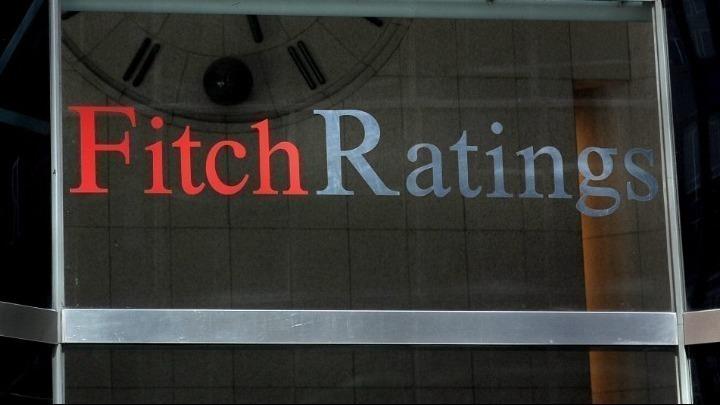Fitch ratings’ upgrade of the Cyprus economy is an acknowledgement of the positive course of the country and a vote of confidence in the responsible policies of the government, President Nikos Christodoulides has said in a post on X.
He spoke of responsible policies for a competitive and resilient economy aimed at improving the daily lives of the citizens.
Posting on X the Ministry of Finance points out that this is the second consecutive upgrade of the economy, following the double upgrade by Moody's.
It refers to the key assessment factors cited by Fitch for Cyprus' upgrade, such as the rapid reduction of public debt, strong fiscal surpluses, limited fiscal risks and strong growth momentum.
Moreover Finance Minister Makis Keravnos in a written statement expressed his satisfaction for the development. The upgrade, he said, clearly shows confidence in the government’s economic policy.
He said that the upgrade follows continuous and successive upgrades of Cyprus that are based on the results and prospects of the economy and "clearly shows the confidence that international rating agencies show in the economic policy followed by the government."
Keravnos also said that the upgrade leads to the necessary conditions of trust and stability for attracting foreign investments, enhancing growth, strengthening competitiveness and creating new jobs.
He pledges that the government will continue to implement sound economic policies based on fiscal discipline, that allow for social policy that supports and relieves vulnerable groups.
Fitch Ratings had upgraded Cyprus's Long-Term Foreign-Currency Issuer Default Rating (IDR) to 'A-' from 'BBB+' with a stable outlook.
The rating agency said that the upgrade of Cyprus's IDRs reflects a number of key rating drivers and their relative weights. Specifically as regards the public debt, Fitch says that Cyprus has had "one of the sharpest declines in public debt/GDP among Fitch-rated sovereigns in recent years, a trend we expect will continue over the forecast period."
"Given high primary fiscal surpluses (we expect them to average 4.8% of GDP in 2024-2026), strong nominal GDP growth (including the uplift provided by a recent major GDP revision) and relatively stable interest rate costs, Fitch expects debt/GDP to fall to 65.5% in 2024 from a peak of 113.5% in 2020," the agency highlights, adding that under the baseline scenario, the ratio will fall to 60% in 2025 and to 55.1% in 2026, in line with the current 'A'-median and well below the current eurozone average of 89%.
Fiscal outturns continue to outperform our previous forecasts, underpinned by strong revenue growth in line with structural and cyclical tailwinds as well as expenditure restraint, the rating agency said.
It forecasts the general government surplus to reach 3.9% of GDP in 2024, with a primary surplus of 5.3% (the highest in the EU), adding that revenue growth was driven in part by strong employment growth across all economic sectors and continued improvement in tax/revenue collection.
Fitch forecasts a gradual decline in fiscal surpluses to an average of 2.9% in 2025-2026 (compared with a projected 'A' median deficit of 2.7%) as revenue growth decelerates.
Fitch says moreover that there is continued strong commitment across the political spectrum to maintaining prudent fiscal policies with a focus on debt reduction, improved revenue-raising capacity and sustaining sizeable cash buffers, adding that it forecasts cash deposits to average 12% of GDP over the forecast period.
"There is also a renewed focus on long-term structural issues with the financing of the social security system (currently there is legacy debt with the central government of around EUR10 billion), which could help reduce long-term fiscal challenges," Fitch said, adding that these developments moderate potential fiscal risks stemming from very open nature of the Cypriot economy.
Fitch expects GDP growth to reach 3.8% in 2024 and average 3.1% over the forecast period, being driven by positive performance across all sectors of the economy, in particular information and communication technology (ICT) and other services (such as financial services) with high productivity.
Fitch also forecasts the unemployment rate to continue to fall over the next couple of years (to 4.6% by 2026 from a peak of 16.1% in 2014).
As regards the banking sector, Fitch says that it has robust solvency, liquidity and profitability, supported by higher interest rates and a favourable macroeconomic backdrop.
The non-performing loans ratio continues to fall, to 7% in 1H24 (from 7.9% at end-2023, still well above the EU average), driven by organic reduction rather than sales of bad assets, the rating agency said.
It also pointed out that the improved performance in the banking sector has reduced the risks for macro-stability and around contingent liabilities to the sovereign, "even though some legacy issues are set to persist over the medium term."
(Source: CNA)









